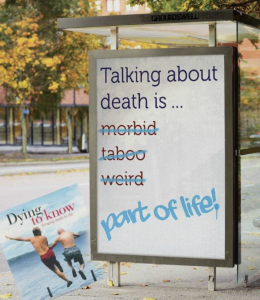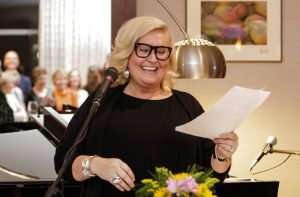1.3 Death Positivity & Listening to the Dying

Death Positivity
We often approach the topic of death and dying with feelings of apprehension, trepidation, fear, or sadness. There is some basis for this fear, as the path toward death for the dying person is often a lonely one and typically involves pain, physical, and mental suffering (Moore & Williamson, 2003). For the friends and family of the dying person, there is the fear of the pain, sadness, and grief that we as humans experience with the loss of a loved one (Moore & Williamson, 2003). There is also fear of the unknown, as we cannot know what happens to a person after death.
But does death have to be approached in this way? What if we worked toward transforming this understanding? What if we created physical and emotional spaces that facilitated discussions of death, while offering comfort, support, and solace to the dying and the bereaved? This is where the concept of death positivity comes in. Being death positive means being open to honest conversations about death and dying (Kelly, 2017). It is also the foundation of a social movement that challenges us to reimagine all things tied to death and dying, including the development of Compassionate Communities (CCs).
Listening to the Dying

A good way to start a course on death and dying is to listen to the voices of people who are nearing the end of life, to hear their experiences, their struggles, and the wisdom only they can share. Many heart wrenching stories are tied to the death negativity that pervades our society. However, in the following video interview with Audrey Parker, a 57-year-old Canadian woman with terminal Stage 4 breast cancer, you will hear a somewhat different perspective. She talks about her choice for Medical Assistance in Dying (MAiD) and offers advice about how to make each of our life’s journeys the best they can be. (Keep in mind that Audrey Parker’s medically assisted death occurred prior to the 2021 changes to Canada’s Medical Assistance in Dying legislation — See Chapter on End-of-Life Care).
VIDEO: This Nova Scotia Woman is Dying Earlier than She Wanted because of Assisted Dying Law

